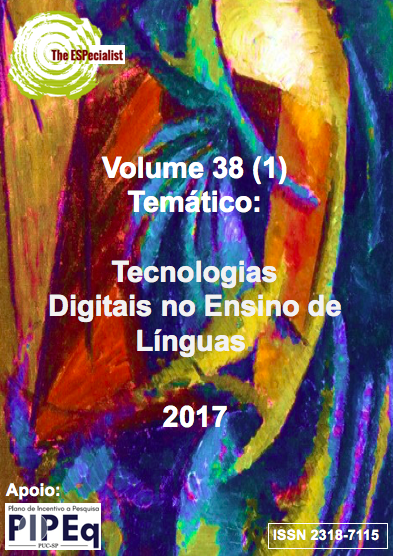EDITORIAL
DOI:
https://doi.org/10.23925/2318-7115.2017v38i1a1Keywords:
Editorial, The ESPecialist, Volume 38 No1Abstract
Em tempos de era digital, a escola e a universidade precisam cada vez mais repensar em incorporar as tecnologias digitais da informação e comunicação (TDIC) às necessidades atuais do aluno. Daí a importância das TDIC se tornarem elos no ensino-aprendizagem, com a escola e a universidade repensando seus nichos na atualidade, ou seja, professores mudando procedimentos de ensino; currículos menos informativos e mais e flexíveis; aulas menos expositivas e mais desafiadoras; integração de projetos para compreender o quê e o porquê se aprende; alunos como centro da aprendizagem; tecnologias como aliadas e não à margem do processo educacional; entre outros fatores. Nessa direção, a escola e a universidade deveriam ser vistas como um espaço para os alunos aprenderem de forma contínua com o uso das TDIC. Pensando nessas questões é que abrimos a edição do volume deste ano com um número temático dedicado ao uso das TDIC e ao ensino-aprendizagem de línguas. O objetivo é apresentar propostas pedagógicas relacionadas a materiais educacionais digitais, no intuito de trazer contribuições de experiências e de investigação para a área de ensino-aprendizagem de línguas em contextos digitais.
Metrics
Downloads
Published
How to Cite
Issue
Section
License
The authors grant the journal all copyrights relating to the published works. The concepts issued in signed articles are the absolute and exclusive responsibility of their authors.







 Esta obra está licenciada com uma Licença
Esta obra está licenciada com uma Licença 